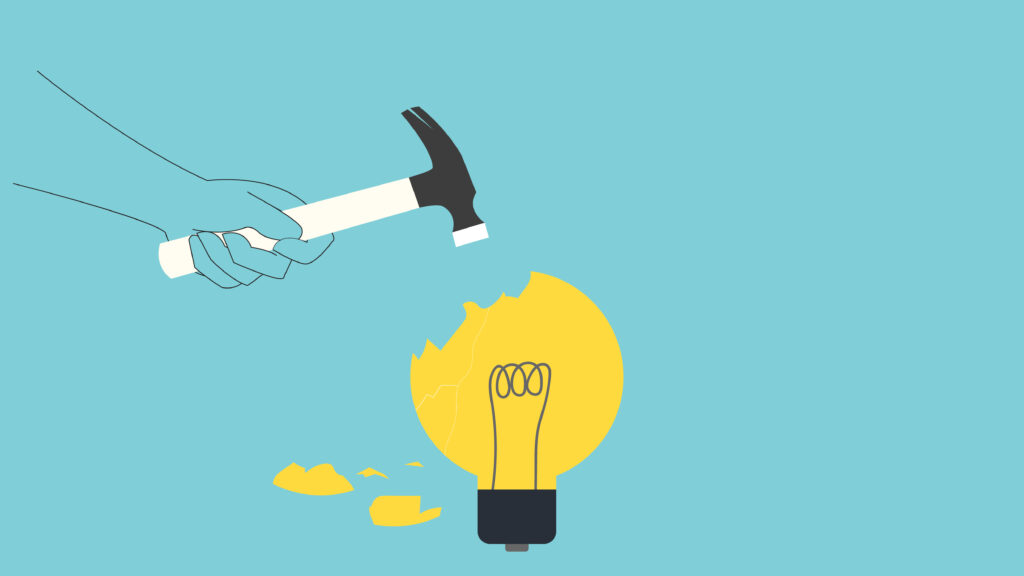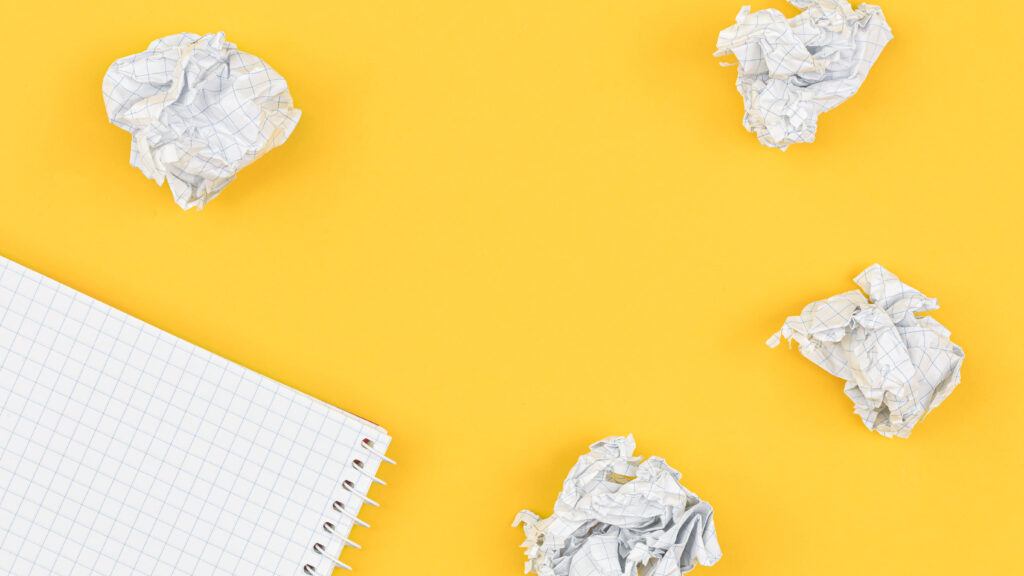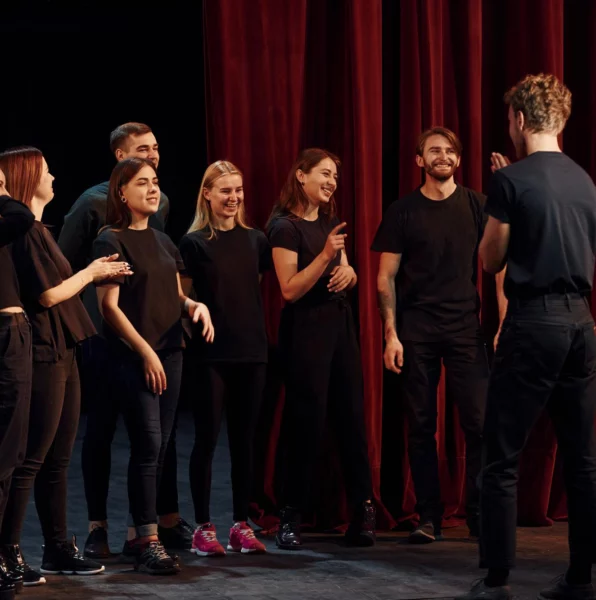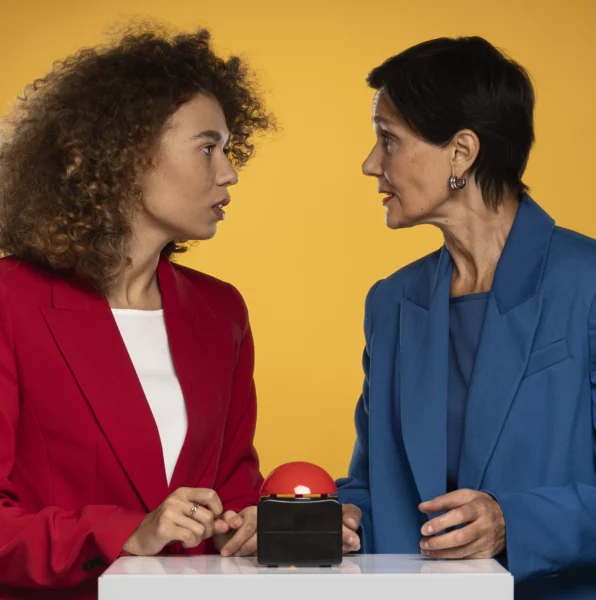How is it possible to identify an expert in a certain field? Which obligations do scientists, journalists and lay people have in the process of science communication? The philosopher George Kwasi Barimah brings in some clues from social epistemology.
„We have to be honest about the uncertainty“
For your doctoral thesis in the discipline of philosophy you are researching the expert-lay person relationship. What challenges do laypersons encounter when it comes to knowledge transfer and acquisition?
I think the main challenge lay people encounter is to identify who the real experts for certain scientific issues are. Although lay people might have some basic training from school, that is not enough when it comes to deciding between experts who disagree on a scientific issue. In philosophy, especially in the field of social epistemology, some philosophers have suggested ways to assist lay people to determine which expert is trustworthy. Lay people can ascertain the trustworthiness of experts through second-order assessments. While first-order assessment involves an assessment of the scientific evidence itself, second-order assessments target the expert who is providing scientific information.
How can this be done?
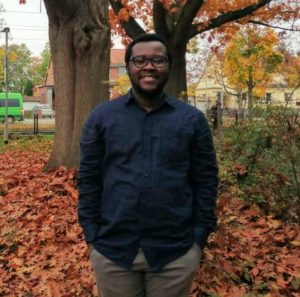
One of the proposals in the literature is to find out whether the expert has a conflict of interest. Lay people can ascertain from publicly available and accessible information on the internet whether an expert is linked to some private or corporate interests, or is working for them. This doesn’t necessarily mean that if an expert is funded by a private company they will be biased. However, what a conflict of interest points to is that there might be a potential for undue influence and bias. Knowing that an expert has a potential conflict of interest is a good reason to withhold trust until further checks are done.
In addition, lay people can assess whether a person presenting themselves as an expert on a particular scientific topic has the appropriate qualification and expertise to make claims about the topic. Lay people can do this by checking the educational background of the person to ascertain whether the person has the requisite training in the relevant area – usually a PhD in the field is a good indicator – and whether they have published research papers in peer-reviewed journals about the scientific issue.
The other thing lay people can look for is whether there is a scientific consensus on the topic. For instance, in the early stages of the Covid-19 pandemic there were claims that Hydroxychloroquine could help to mitigate against the symptoms of Covid-19. In order to determine the truth of this claim it is important to check what the view in the scientific community is. If that’s not the consensus within the scientific community, it is an indicator that trust needs to be withheld.
What about areas where there is conflicting scientific evidence or uncertainty?
Stephen John in an interesting paper published in 2018 describes a phenomenon he calls a “false folk philosophy of science.” According to this view, lay people often think that science has no room for uncertainty. According to Stephen John, this false folk philosophy of science in the public domain is sometimes exploited by pseudoscientists who may want to sow doubt in the minds of the public concerning scientific uncertainty. In order to correct this erroneous view of science in the public domain, science teachers and philosophers of science must inform the public that uncertainty is common in science, that science is always open to changes and when new evidence is discovered scientists revise their initial recommendations.
When it comes to the question of communicating scientific uncertainty, my default answer is to be honest about the uncertainty. We should let the public know to what extent we are sure about the evidence supporting a scientific claim and to what extent we are not so sure. As we do this, we must tell lay people and policy makers that even though our evidence is not 100 per cent, the current evidence we have is justified enough to support a particular recommendation. If this is clearly and honestly communicated scientists will not face a public backlash, if they have to revise their recommendations later on.
Getting back to the recommendations for second order assessments. Aren’t these checks for honesty, scientific consensus and conflicts of interest quite ambitious and challenging for people not working in a specific scientific field?
That is completely right. I published a paper where I raised the same concerns. Assessing the trustworthiness of experts requires a lot of training. Of course, there are different educational levels of lay people. Some lay people really understand scientific issues and have an interest in learning more about scientific research. Others are more dependent on what scientists tell them. In general, it is challenging to determine who is a trustworthy expert on a particular scientific issue. For instance, how can lay people determine the scientific consensus on an issue? They could look at the current literature in the field, but how do they know the relevant journals to look for? Do they have to read five articles or ten articles before they know what the consensus is?
In my paper I provide two recommendations. The first is that science journalists have to play a key role as intermediaries between lay people and experts. We assume that science journalists have much more training than lay people in determining who the real experts are. Therefore, science journalists should put their training to good use by performing the role of gatekeepers for the public.
Science journalists can perform second-order assessments on behalf of lay people. So, they should not only report on scientific issues or invite experts to their programs. Science journalists must also do a lot of background checks to ascertain whether a person presenting themselves as an expert meets the criteria of honesty, expertise and has their claims peer-reviewed within the relevant scientific community.
What is your second recommendation?
The second thing I suggest is that experts should help to facilitate second-order assessment of their own expertise. That is quite interesting because apart from providing information on the first-order evidence supporting their claims, they must also provide information about themselves. Are they really experts in this field? They can provide information about their past work and about the scientific consensus to make sure that they are not only talking about their own ideas but about the current view in the scientific community.
There is a term in the social epistemology literature known as “expert trespassing”. This term is used to describe the situation where experts in a certain field pose as experts in other fields where they lack the relevant expertise. For instance, the fact that one is a general physician does not necessarily give one the right to talk about issues of epidemiology. If a general physician presents herself as an expert in epidemiology, without being one, people will be misinformed if they trust her. We know that there is specialization in different fields, therefore experts have to be honest about the extent of their expertise.
In my research I am also trying to show that trust in experts has a moral dimension. Experts should consider the vulnerability of lay people who depend on them for reliable information. If I invest my confidence in somebody who betrays me, I may not trust them again. It will not be helpful for science if lay people don’t trust scientists any more. That is why experts should be really careful about betraying the trust of lay people.
How should experts engage with the public to gain trust?
The philosophers Gürol Irzik and Faik Kurtulmus published a paper in 2019 where they suggested that epistemic trust in science can be enhanced when experts interact directly with lay people, for example, in community forums or some kind of deliberative meeting. In such meetings, people can ask questions concerning certain scientific issues and ascertain whether experts share their values or have their interest at heart, especially in cases where public welfare is at stake. For instance, when a mother does not want to vaccinate her children because she has concerns regarding safety, we shouldn’t brand her as unscientific. We should engage with her with the goal of appreciating and understanding her concerns and fears and then assure her of all the necessary steps taken to make a vaccine safe for children.
People looking for scientific evidence are confronted with a media environment characterized by many different platforms, views, accurate as well as fake news. How could lay people face these challenges?
One way to go would be to adopt an institutional approach. What this means is that the managers of social media platforms like Facebook and Twitter have the responsibility to filter the information that is posted on their platform. This could be done by assigning credibility indicators to users. If someone provides information which is verified to be fake, we can let other people on the platform know that the person has a track record of providing fake news. That could be an institutional solution to help safeguard other users on the platform.
Also, lay people should be made aware that there are all kinds of information on social media, both fake and accurate ones. Therefore, lay people have a responsibility to look for other sources of information aside social media. To be open to other sources of information is a mark of intellectual virtue. This is an attitude we should encourage people to develop.
That means that while experts and journalists have the obligation to provide information, lay people also have a responsibility to be open to the information presented to them?
Yes. In my research I am looking at what experts, journalists and lay people have to do to ensure that accurate information is shared and acquired. Lay people also have a responsibility in this process which is often overlooked. We know that information flows from a communicator to a listener, therefore the recipient must also be intellectually virtuous to look for and receive accurate information. If our goal is to share and acquire accurate and reliable information, then all of the participants in the information flow have to do some work.
